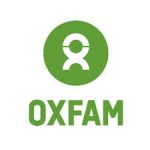We park the car just outside the neighbourhood of Jaber, an area C neighbourhood in Hebron. Area C means that the area is inhabited by Palestinians but occupied and controlled by the Israeli state. We are greeted by a woman called Fowzieh. The road down to Fowzie’s home is only for Israeli cars, Palestinian cars are prohibited from driving on it, so we walk the rest of the way. We pass group after group of Israeli soldiers on the way to Fowzieh’s house. “They call me the crazy lady because I am not scared to confront them”, she says. Her house is overlooking a small valley, and she has a clear view of the occupied land that used to be owned by Palestinians. Now it is a settlement. She shows us into a kitchen with bright pink cupboards. She offers us water and fresh figs, and she tells us that the kitchen is a meeting place for the women of the neighborhood who are having a tough time. The kitchen has been burned three times by the settlers and each time has Fowzieh built it up again.
We ask her how it makes her feel when she sees the Israeli soldiers; “I’m used to it. I trust that I am in my house. This is my home and he is the outsider. In the past I used to enter fights with the soldiers. I was not scared to kick or fight the soldiers. But now that I have children, I am afraid the soldiers will harm them”. She explains that her children have been harmed by Israelis before. Her daughter was sprayed in the eyes with pepper spray by a settler. Fowzieh fought back and took the pepper spray and sprayed the women who had assaulted her daughter. “I wish I died because after this my daughter suffered a lot from this woman. The soldiers told me I would spend my whole life in prison. They only held me for a couple of hours, but I was detained in my house for a year.”

The village calls Fowzieh the superwoman of Jaber because she always steps in between the soldiers and the children, so they can’t harm them. We ask her why she does this. “Because I love my neighbors. The soldiers are on the settler’s side. Palestinians are always the victim. We are each other’s protection and family”. So it all feels like family? “These people are my family. All these people are my children.” Fowzieh also explains to us that because she is an elderly woman the soldiers will not be as rough to her as they will be to others, even though they still attack her. She tells us; “I am an activist woman. My time is not for myself; it is for others. I always have my hijab by my side, in case there is an attack and I have to go out and help. There are not attacks every day, but I am ready every day”. She tells us that even a wrong look or a single comment towards the soldiers can trigger a confrontation or detainment. Once her son was taken by the Israeli soldiers, and they brought him to a deserted place and beat him up the whole night – “They played with him like a puppet”, she says. The next day they had to release him because they had no legal case against him.
We ask Fowzieh why she chooses to keep staying in this area when such bad things happen. She tells us that this land has been in her family since her grandparents’ time, and this is where she feels at home. “I feel nostalgic here”, she says. But living in a closed area is not easy. She must carry everything by hand because she cannot enter the area in a car. She also tells us that sometimes ambulances or even fire trucks are detained by Israeli soldiers at the checkpoints, so they have to carry the sick persons to the checkpoint. Once, this resulted in a pregnant woman giving birth in the local market, because the ambulance was detained.
The interview ends with Fowzieh telling us that all areas under Israeli occupation like hers, have their own situation and different kinds of struggles. But what they have in common is that the Palestinian people living there are robbed from their human rights.







